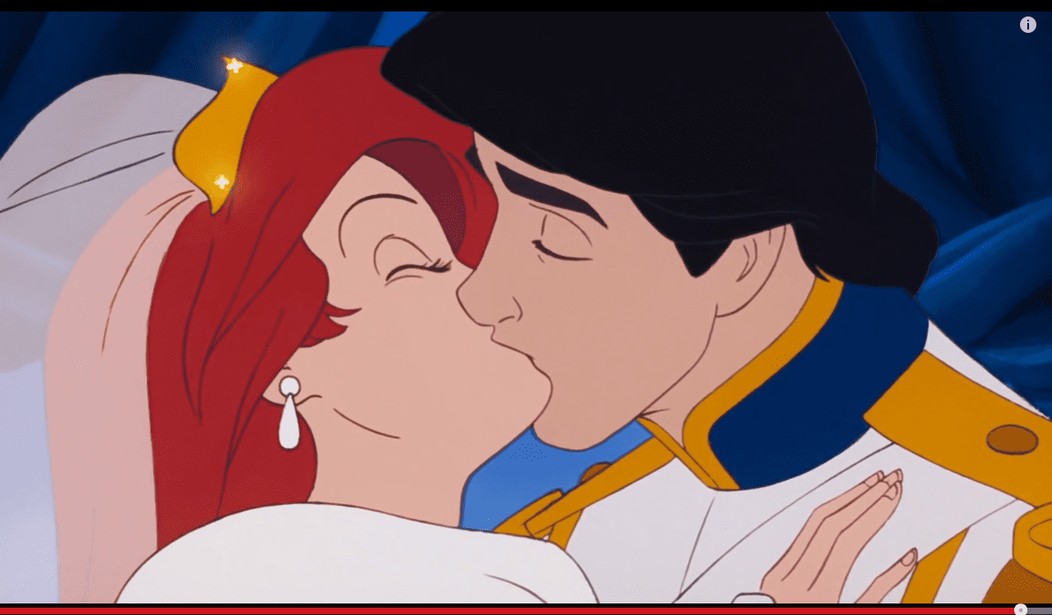I didn’t marry Prince Charming. My slippers are made of wool, not glass. There’s nothing magic about my carpets. All my friends are distinctly humanoid. And, where I come from, gray stuff is definitively not delicious.
But I did marry the man of my dreams. I ditched the “over-dressed, self absorbed” guy I dated in high school and the “boorish, brainless” one I made the mistake of getting involved with in college. And I chose the friend who turned out to have “something in him that I simply didn’t see.”
Yes, I am a grown woman who loves Disney princesses. This is not a confession. I’ve got nothing to hide. In fact, I’m proud to associate with the likes of Ariel and Jasmine and Belle. Go Team Beast! And, frankly, I’ve been silent long enough.
For decades, debate has raged over whether or not the Disney princesses are feminists. In one camp are those who argue that the princesses can’t be feminists when all they’re after is a man to marry. In the other camp are those who grudgingly acknowledge that the princesses’ end goal is marriage but insist that there is so much more to them than their desire to marry. What I want to know is: what’s so wrong with marriage?
For the sake of this discussion, let’s focus on the obvious golden age of Disney starting with The Little Mermaid and ending with The Lion King. These are movies in which men and women (and lions) are seeking the fulfillment of their deepest desires. Is it really so controversial to think that most people’s deepest desires include a committed partner to spend their lives with?
Apparently it is. In a post for Mommyish.com called “I Regret The Day I Let My Daughter Watch The Little Mermaid,” Sarah Bregel says of her daughter’s love for the movie, “A 2-year-old talking about marriage and imitating marriage? I’m just not into it. It doesn’t seem healthy and it kind of freaks me out.” Honestly, it kind of freaks me out that it freaks her out.
We are supposed to think that the problem here is that two years old is too young to be so interested in something as grown up as marriage. But that’s not really the problem. If her daughter started pretending she was the CEO of a Fortune 500 company I bet her mother would be over the moon. The issue is that this little girl is thinking about marriage in particular. But if little kids are going to make believe about adult things, which they are, and if marriage is something that adults do, which it is, it seems like her little girl is on the right track. Better to pretend she’s happily married than that she’s living alone with her cats.
Of course, we’re not only after marriage. But neither are our Disney gals. Ariel desperately wants to be human. Belle wants adventure in the great wide somewhere. Jasmine doesn’t want her destiny decided for her. But a part of their plan is to find someone they love, who loves them in return, to spend their lives with. And, dare I say it, this holds a pretty high spot on the list of important life goals for most people, if they’re honest with themselves. And this is a good thing. Healthy, even.
In recent years, Disney has tried to appease feminists who are arguing that marriage is not an appropriate end goal for little girls. Movies like Frozen and Brave attempt to shift the focus away from romantic love. In Frozen, Elsa learns that the most important love of all is the love she has for her sister. And in Brave, Merida learns that . . . actually, I have no idea what she learns—that movie made no sense. There were a lot of bears. But she ends up exactly where she started, at home with Mom and Dad.
It’s very sweet to love your sister and your parents, and we hope our kids will always love us, but is this really the future we want our children to aspire to? Are we saying that, instead of going out into the world on their own and finding someone with whom to share their lives, our children should stay safely at home, with us? That doesn’t seem healthy and it more than kind of freaks me out.
Disney taught me well. I learned that my one true love is out there. That I shouldn’t settle for anything less. I learned that when I found him, I should marry him. Like Ariel, I learned that sometimes I might have to make sacrifices to be with the man I love but that, if he was the right one for me, the most important things (like my voice) would always be appreciated. Like Belle, I learned that love is not a prison, it’s a place where, once you’re free, all you want to do is come back home. Like Jasmine, I learned that, for a relationship to work, you both have to be authentically you (whether you’re a street rat or a princess). These are all things I hope my children learn too.
I’m a grown woman who loves Disney princesses. I’m a wife who knows the value of marriage. I’m a mom who will teach her children that value too. And, at the end of each day, I will crawl, exhausted, into bed next to my husband then wake up and do it all over again. That’s my happily ever after.









Join the conversation as a VIP Member